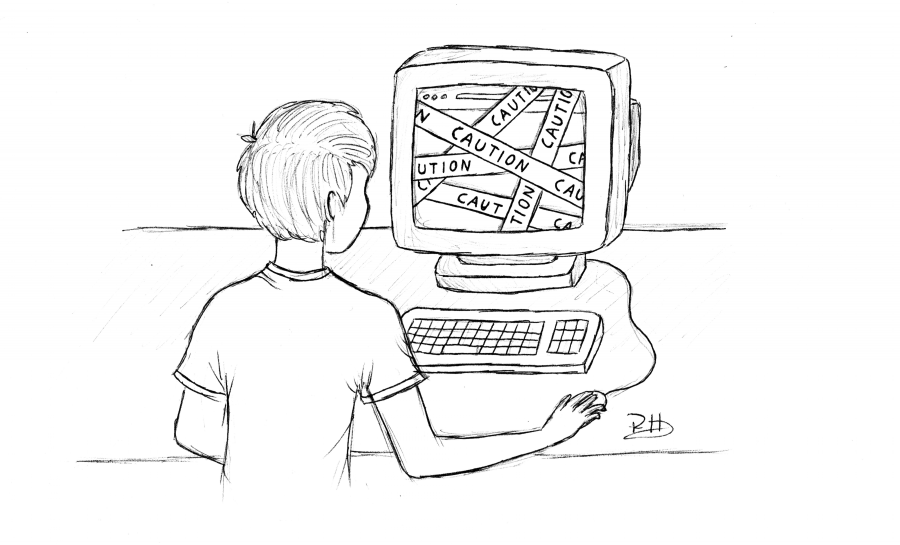Wi-Fi restrictions infringe on students’ freedom
Henno Kublin, Staff Reporter
Originally published June 24, 2016
Rachel Halmrast
It’s moments before calamity strikes; the calm before a storm. A young freshman, Johnny, in high school — one who holds such promise — is seconds away from destroying his life.
Poor Johnny types “Twitter” into the Google search box, eager to check the Ballard sports Twitter for an update to the soccer game. His hand shakes as it lowers to hit the enter key, knowing deep down what he is doing will damage his life forever.
Thankfully, Seattle Public Schools has taken measures in anticipation of a terrible event such as this, and blocked Johnny’s pursuit. Johnny, seeing that his search had been blocked by the school Wi-Fi, is shaken from his delirium. He sheds a tear of joy as he still has his entire life ahead of him, and it hasn’t been dashed by one terrible internet interest.
This, however, is not the reality of the situation. The school’s Wi-Fi restrictions don’t save kids’ futures, or even protect their innocence. They instead infringe on their freedom and damage their learning.
The idea that high schoolers, some of which can join the army, should need internet restrictions is beyond ridiculous. Not only does it hold students back from using resources for their learning, but it consumes their time as they make efforts to evade the faulty restriction system.
Many students already know using a Virtual Private Network, or VPN, allows a bypass to the Wi-Fi restrictions on any device enabling it. A simple app can be downloaded, then one can join a VPN network with the tap of a single button. However, this comes at the cost of a weak connection and takes even more time away from students.
A precaution such as this isn’t a necessary measure for students. Holding back students from playing games or viewing nudity on the internet doesn’t justify the time lost or the substantial restriction in freedom that comes along with these imposed limitations.
The Ballard Talisman Twitter ran a poll asking students if they use VPN. Out of 80 students, 85% use VPN. Since most students use VPN, this renders the Wi-Fi restrictions for phones useless, except to slow down students connectivity. This leaves the computers without VPN, where students do most of their work.
Students can’t look up lyrics to a rap song, but can drive a car to school. Students can’t use Twitter or Facebook as a resource for up to date news, but can go and buy a pack of cigarettes. While the rest of the world is investing their trust in high schoolers abilities to make good decisions, it seems Seattle Public Schools is too scared of students looking at porn in class to have any faith in their maturity.
Wifi restrictions should be removed entirely: plain and simple. Nothing online is damaging the safety of students, or even detracting from their overall learning. Most students access the internet daily, and have done so for many years.
Of course there are some areas of the internet that are inappropriate for students at school, but students should be trusted to avoid such dangerous niches of the internet instead of having their time and freedom wrongfully robbed of them.

























